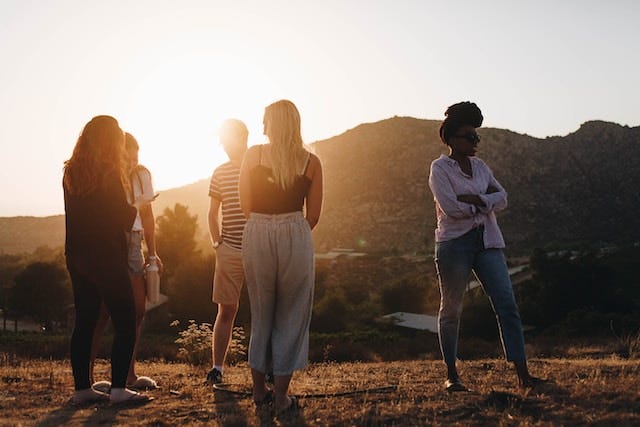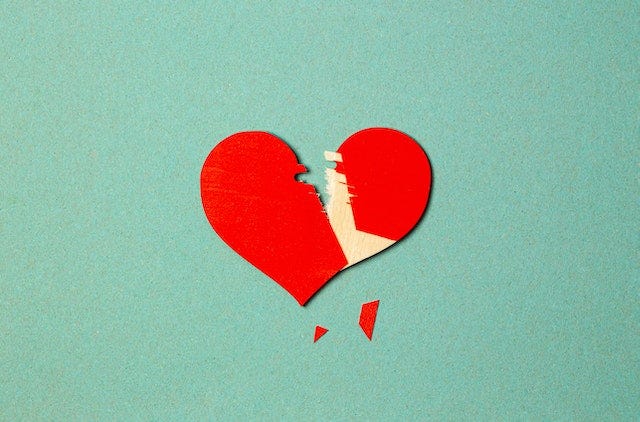Can people recognize who their frenemies are?
From Shanquella Robinson to Gabe to Tyrese, why do people give their friends-turned-enemies so many chances?

Frenemies have been involuntarily on my mind lately. I usually pay this topic dust, but it keeps coming up in recent weeks. First, there was WBEZ’s “This American Life” story “What Are Friends For? No Seriously, What Are They For?” (Ep. 810, Act 1) about Gabe Mollica and Tim. In the real-life story, Tim dated Gabe’s ex-girlfriend unapologetically, and Gabe was so distraught about the way Tim broke the news to him that he created a one-man show. Although the live show was about the friendship between the two, and Gabe was mutual friends with Tim’s mother (who undoubtedly saw ticket promotions about it), Tim never came to the show. That is, until WBEZ got in touch with him. (I won’t spoil the ending, but I felt a way about their reuniting conversation.)
Then, there were far more tragic stories like that of Shanquella Robinson, who was killed in San José del Cabo during a trip with “friends.” No federal charges were ever pursued after the “alcohol poisoning” story started looking suspicious. This October 2022 case brought up the complications of international law, which prevents states from enforcing their laws abroad. Sadly, I hadn’t thought of this story for months after it seemed to be in eternal limbo.
ADVERTISEMENT ~ Trust & Will
That is, until The Breakfast Club recently broke the story about the Tubi show “Street Legal.” Like pretty much everything on Tubi, the acting is terrible and I would have never known about the show. Curiosity got the better of me, so I watched it. It didn’t take long for me to fully understand why Robinson’s family sent a Cease and Desist Order over Episode 2 “Frienemies.”
Regardless of whether the girl in the episode looked anything like Robinson, she was even pronounced dead at 5:57 p.m. — just like Robinson. Although I was never big on watching “Law & Order,” the two shows mirror each other — “fictional” but sure as hell seem to be based on a true story. The Tubi episode brought up renewed interest in why no one was ever punished for the crime.
And in a third, far less intense but still tense incident, and because The Breakfast Club broke the second story, I once again pondered on the issue between DJ Envy (and his wife) versus Tyrese. (Short story: Tyrese played a significant part in the two rekindling their marriage and even sang “Stay” during a romantic date for DJ Envy to get his wife back.) Although Charlamagne tha God rambled on about time wasted for a recorded interview Tyrese did with him, the latter co-host’s clout pouting didn’t compare to the bigger conflict between DJ Envy and Tyrese over alleged comments made to his wife. (Although firmly on Tyrese’s side at first, the ramblings on his Instagram account and the Rick Ross collaboration made me switch sides. Salute to Jess the Mess for doing her best to keep the peace. She should be the permanent TBC third host.)
In all three scenarios, I just kept thinking, “Why do people want to befriend their enemies? Do they even know when they have frenemies before it’s too late?” Clearly, the Robinson case is extremely tragic and the worst ending compared to the other two examples, but all three were cringeworthy and frustrating to listen to.

That led me to the Psychology Today study on frenemies. The definition of this phrase is “relationships, often negative, steeped in situational ties and shared social connections that outwardly appear friendly but are fraught with underlying competition, jealousy, or distrust.” Described as a “felt” experience instead of being outwardly told how their relationship is, Psychology Today believes “frenemy relationships have an element of ‘unspokenness’ in them.”
And that’s the part that perplexes me the most: Why does this “unspoken” relationship continue?



